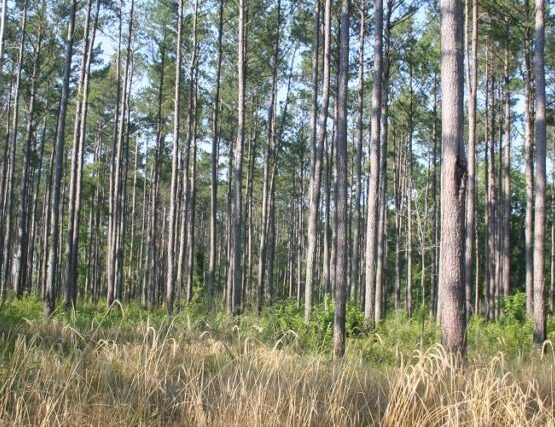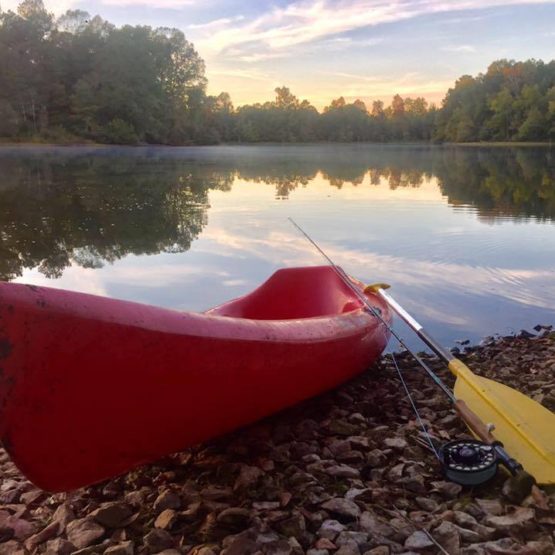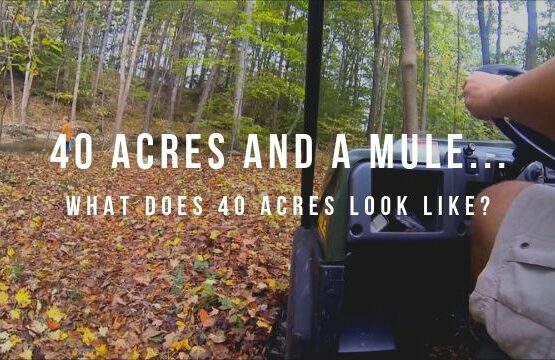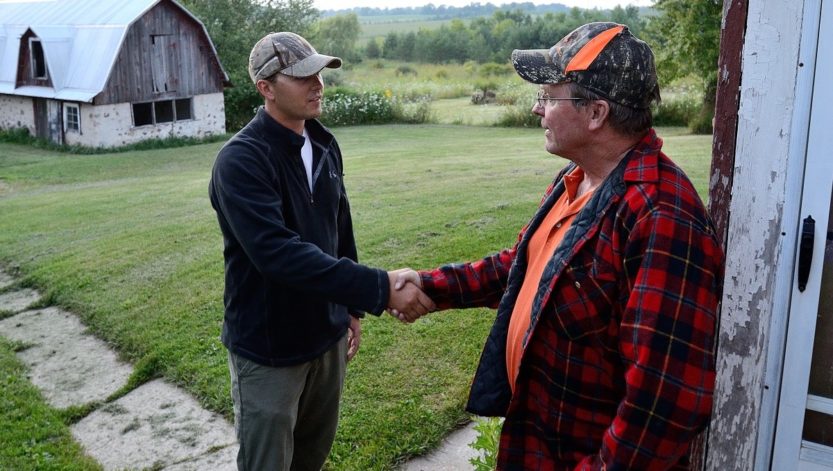
Land Investments and Ownership – Be a Good Neighbor
I realize that I’m treading into dangerous territory, here. There are so many variables in play in relationships between landowning neighbors. In some cases, those relationships have been forged, for better or for worse, over generations. But, I’m trying with this blog to convince you to consider land investments, and relationships with neighbors are among the most important, and potentially among the most rewarding, aspects of land ownership.
Among those who have been brought up around land and land ownership, there is a general understanding of the (you’ve seen these words on this blog before) benefits and responsibilities of being a good neighboring landowner. That general understanding is that, if you are a good neighbor, chances are that you’re going to have a better time owning land.
Opportunities to Work With Your Neighbors
I can count on one hand the issues, and thus the opportunities to accommodate a neighbor, that cause the majority of friction between adjoining landowners:
1. Access across one’s land for your neighbor’s logging contractor to harvest timber or for him/her to bring other heavy equipment across one’s land, maybe for construction purposes.
2. Access across one’s land for the purposes of game hunting.
3. Disagreements between neighbors as to methods or guidelines for the purposes of game hunting.
4. Genuine dislike between neighbors, often related to game hunting or personality differences.
I may think of some others, later. But, really, this about covers it.
In my thirty years of managing, buying, and selling rural properties and other land investments, I have at times come to believe that I’ve seen it all. Then, I get a new lesson. I haven’t seen it all, but I’ve seen and experienced a lot of these interactions. I’ve heard accounts of many others. Only the bad ones (which are very few and, of course, make the best stories) stand out in my mind. Let’s just say that passions can run high between neighboring landowners and hunting clubs, as they of course can in any human interactions.
The good news is that for every one of the crazy stories, I’ve seen literally hundreds of examples of landowner neighbors bending over backwards to work with their neighbors on game hunting, on logging access, and on just being good neighbors and looking out for each other. They are the norm. They don’t really stand out at all in my memory, but I know they stand out in the memories of the neighbors involved and that those good relationships add richness to their lives.
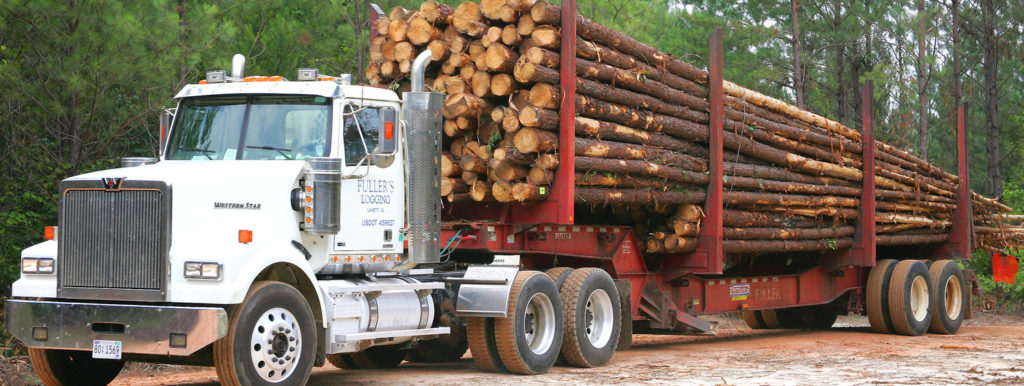
It goes both ways with land investments. If you are crossing your neighbor for whatever reason, you have a responsibility to him/her. Ensure that disturbances to ground conditions or game hunting are kept to a minimum. Be sure that needed road and field repairs are done at the end of a construction or logging job. If you have a neighbor who needs to cross your land for a legitimate purpose, you have a responsibility to work with him/her as best you can to accommodate that need. At least, that is how I see it.
Access for Logging and/or Construction Purposes
If you or your logging contractor or your construction contractor are moving equipment and loaded trucks across a neighbor or several neighbors, ensure with your contractor or your forester that these things happen:
- Leave your neighbors’ roads and/or fields in as good a condition as they were when you began, or better. During a job, especially in wetter conditions, trucks and equipment can render roads and/or fields sloppy and/or rutted. A dozer or a motor grader or both might be needed after the job is complete to ensure that ground conditions on your neighbor are set right. Seeing to this is a direct responsibility of your contractor and, if you have hired one, your consulting forester. But, ultimately, it is your responsibility as the neighbor. See that your contractors handle it.
- Open and close your neighbors’ gates as they request or require. Often, the neighbor has cattle, horses or other livestock behind closed gates. Often, the neighbor just doesn’t want gates left open for legitimate fear of trespass from others who have no business on his/her land. Respect those concerns, and make sure your contractors do the same.
- Communicate with your neighbor, or make sure your contractor or forester communicates with your neighbor, as the job proceeds. That display on your part of appreciation and concern will go a long way toward enhancing the relationship. I know of one particular recent (actually ongoing) logging job where the timber company representative responsible for a logging job, who also happens to be the owner of the timber being harvested, has made an emphatic point of keeping in communication with his neighbor, whom the logging contractor is crossing with trucks and equipment. Wet. Sloppy. Nasty, really. But, the relationship with the neighbor is strong, because the timber company rep/landowner is staying in touch with the neighbor.
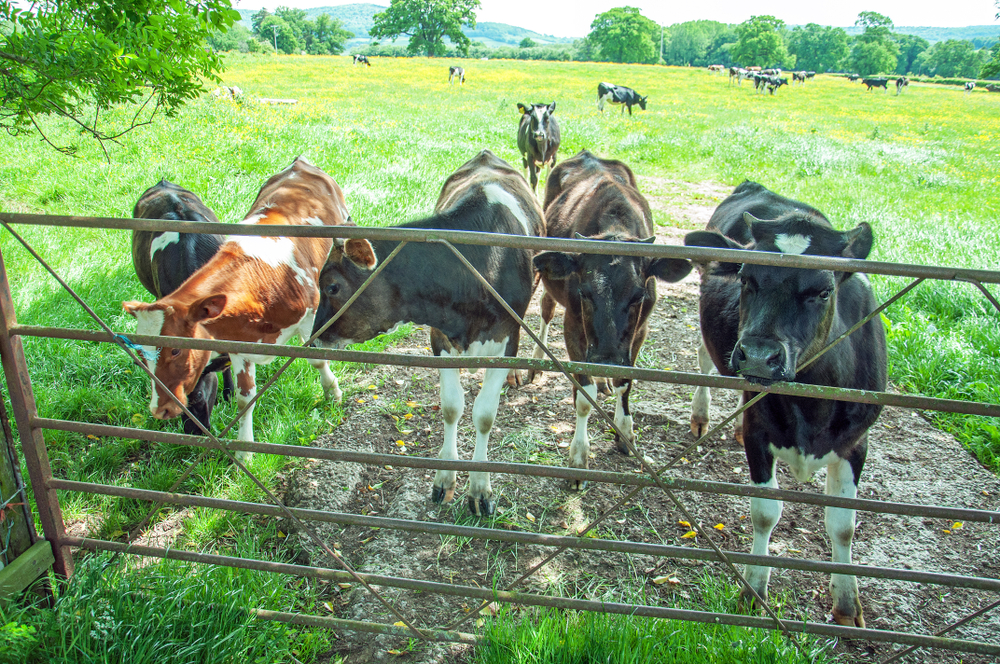
The good thing about access for logging and/or construction is that it doesn’t last forever. It has an endpoint. Eventually, the logging or construction job will be completed. Unless the neighbor is coming back to site-prep and plant his or her land in seedlings, that should be it for at least a good while.
Some Neighborly Advice
This is a personal note: Don’t charge your neighbors for crossing you – for any reason. It’s fine to ask them to pay for necessary repairs. Or, ask them to put up a bond from which the cost of repairs left undone can be covered. Any remainder can be reimbursed to the individual or company that puts up the bond. But, don’t charge your neighbors for the privilege of accessing their own land. I have strong feelings about this. It’s just poor form. That’s my opinion, and it’s probably, at least in part, because I know from experience that what goes around does tend to come around.
I’ve seen people charge a neighbor for access, and I’ve been charged for access. It’s usually people who are new to land ownership that go that route. I don’t blame them, really. They probably had no one to explain to them how this deal works. It’s okay. They are typically very nice people. I can understand how they would see things that way. It seems like easy money.
Hopefully, though, you’ll keep what I’ve written here in mind, if you ever dive into land investments and find yourself in a similar situation as the landowner across whom your neighbor needs access.
Access for Game Hunting and Disagreements About Hunting Methods and Guidelines
I’ve managed hundreds of hunting leases during my career. I’d say that about 90-95% of them are pretty trouble-free. My hunting clubs have generally gotten along well with their neighbors, or, if they have problems, I don’t hear about them. They work it out. They become good neighbors with the landowners and/or hunting clubs around them.
Part of that is because I have told my lessees that, if I do hear about problems and have to spend time on them, there’s a good chance that I’m going to find a new lessee. That seems to work well.
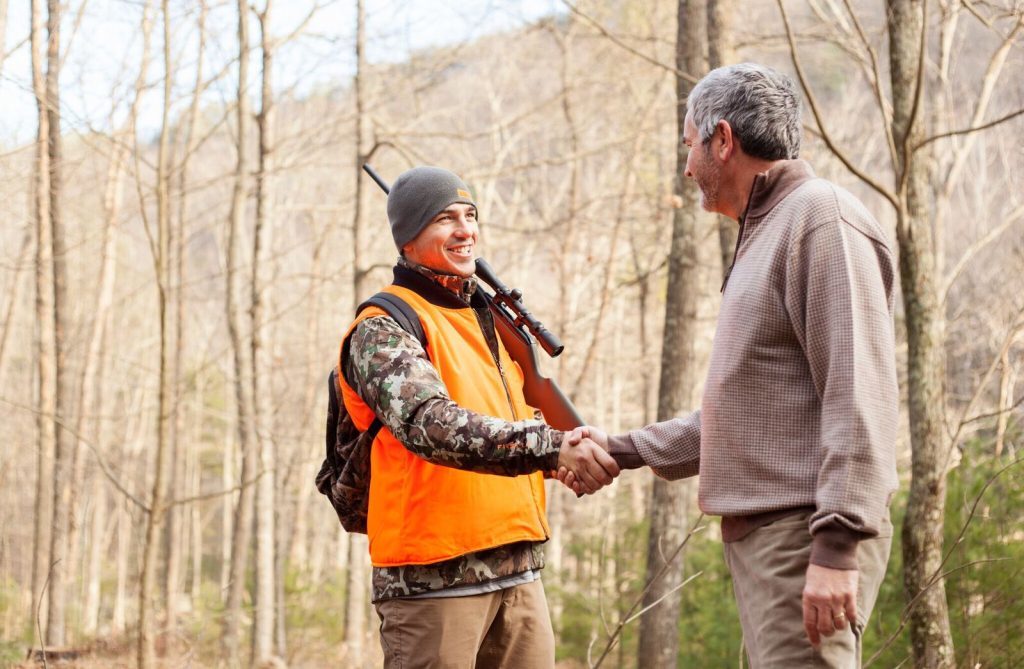
I guess my best advice is to try to put yourself in your counterpart’s shoes, and work with him/her as best you can. Life is just better that way. If you are a landowner who hunts and has problems with a neighbor, whether the neighbor is a hunting club or a landowner, try your best to work things out so that everyone can enjoy their time in the woods. We have enough stress in our everyday lives. Time in nature is a time to heal up. Well, not always for the game, of course, but you know what I mean.
Always try to look at the situation from the other’s point of view, if you can. That said, also always demand that your counterpart respects your concerns, as well.
Genuine Dislike Between Neighbors
I can’t really help you with this one, except to suggest to you that you can be a part of the solution. Do with that what you will, and good luck.
Deeded Easements/Deeded Access
I’m appending a quick note here about deeded easements (a deeded easement give you a legal right to cross your neighbor) and what I refer to as deeded access (actually owning the land that accesses your property, sometimes only a narrow corridor), which do go a long way toward solving these issues; although, issues still occur when they are in place.
Today, almost all land is bought and sold with some legal right to access the property included in the transaction. Disagreements still occur over road and/or field conditions, opening and closing of gates, shared gate lock setups, and other areas of interaction between neighbors. But, deeded access by easement or by simply buying a strip of land for access outright is almost indispensable these days.
Of course, if you can access your land directly by a city street, county road or state highway, you’re golden. Then, there’s a good chance you’re the neighbor through whom someone will need to cross – someone who doesn’t have that direct street, road or highway access.
We’ll examine the deeded easement/access thing in more detail later, but I needed to at least mention it here.
Land Investments and Neighbors – Conclusion
Relationships with these neighbors can be among the most rewarding of your life. After all, you share with them a very important interest as a fellow landowner. If you do invest in a property or properties, make an effort to get to know your neighbors. Their contact information is readily available. Regardless of access or game hunting issues, the chances are that you’ll each have opportunities to help the other many times in the future.

Hello, and thanks for visiting NatVest.com.
My name is Bucky Henson. I am Qualifying/Responsible Broker and President of NatVest LLC.
Among other things, I’ve worked with natural investment properties (timberland, farms & other real estate) for about 30 years.
NatVest.com is my blog directly intended to present the idea of landownership to people who haven’t previously considered land as an investment option and as a way of life. It is both.
We hope to present a wide array of perspectives of land ownership and stewardship that will, hopefully, spark interest and interaction about the topic.
We welcome you and, more so, welcome your input and participation in the discussion.
I can be reached at [email protected] or on my cell: 334-412-2487.
And, by the way, I am now taking listings for properties for sale in Alabama and Georgia, so please give me a call, if I can help you.
Finally, I also handle timber sales, buy standing timber and help people evaluate their options on timber sales. So call or write if I can help with any of your timber sales needs.

Hello, and thanks for visiting NatVest.com.
My name is Bucky Henson. I am Qualifying/Responsible Broker and President of NatVest LLC.
Among other things, I’ve worked with natural investment properties (timberland, farms & other real estate) for about 30 years.
NatVest.com is my blog directly intended to present the idea of landownership to people who haven’t previously considered land as an investment option and as a way of life. It is both.
We hope to present a wide array of perspectives of land ownership and stewardship that will, hopefully, spark interest and interaction about the topic.
We welcome you and, more so, welcome your input and participation in the discussion.
I can be reached at [email protected] or on my cell: 334-412-2487.
And, by the way, I am now taking listings for properties for sale in Alabama and Georgia, so please give me a call, if I can help you.
Finally, I also handle timber sales, buy standing timber and help people evaluate their options on timber sales. So call or write if I can help with any of your timber sales needs.
